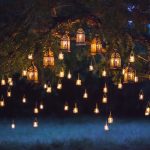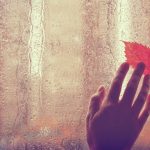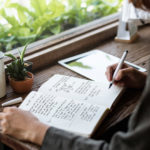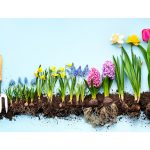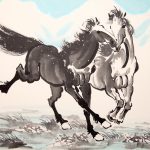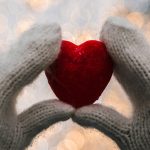The Legacy Of Water
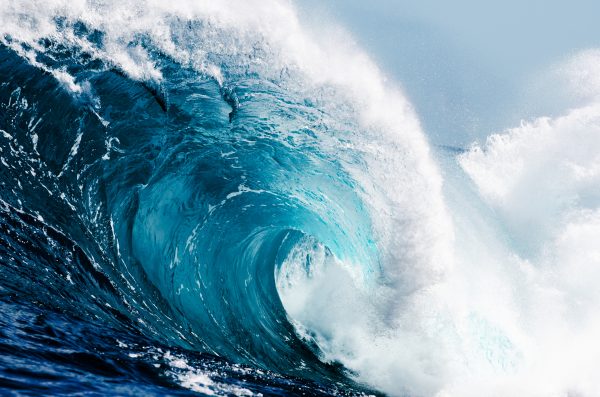
Reflection:
As storytelling beings, we tend to remember stories more than lectures. Stories have the power to shift our perspectives, change our values and behaviors. It follows then if we want to make an impact on future generations, we will likely be more successful if we share our personal and memorable stories.
We all know that water is basic to life – that our bodies are made up of 50–65% water – that clean water is at risk planet-wide. What we’ve long taken for granted is a scarce and endangered commodity. We are plagued with floods, droughts, and tsunamis. It’s predicted that the wars of the 21st century will be fought over water, not oil. Closer to home, we run water in our kitchens and bathrooms without a thought for its value. We remain unconscious at best and entitled at worst as we waste the elixir of life.
I’m in Israel as I write this to you, living for two months less than a five-minute walk from the Eastern coast of the Mediterranean Sea. I spent several days last week in the Negev desert, (with my son who was visiting me) where they get less than 2 inches of rain annually.
Last month I heard about an award-winning Israeli company, Watergen, that developed a practical way to make water from … (drum roll, please) … air! Check out their story that amazed me and gave me hope that we could change the legacy of millions dying in droughts and deserts, I decided to re-post a 2015 Tips&Tools I’d written about water. Back then it was Seth M. Siegel’s amazing book, Let There Be Water, describing Israel’s water partnerships with Jordan and The Palestinian Authority – sharing drip irrigation and dirty water reclamation projects to preserve this precious commodity that inspired me.
Water is the driver of nature.
– Leonardo da Vinci
Water, water, everywhere, And not a drop to drink.
– Samuel Taylor Coleridge
Is it possible for us to affect this terrible legacy we’re leaving the future? The best way I know is to tap my memories and share stories with my grandchildren, hoping they will value water before it’s too late.
Born a Scorpio, one of the water signs, it’s no wonder that I love being in and around water: Viewing the unique blue of Crater Lake in Oregon; watching the sun paint the clouds as it sets over the Eastern edge of the Mediterranean, feeling awe at the power of the Flaming Gorge Dam in Utah, and the frigid western shore of Lake Superior; canoeing in the pristine Minnesota Boundary Waters; listening to the sound I make trailing my hand in the water from a rowboat; sitting at the creek’s edge feeling the spray from wind and water play; riding my first bike around Lake Harriet every day of my tenth summer.
Here are two of my favorite water stories that I want my grandchildren to remember:
During the drought of the late 1970s, we lived in northern California. Water was rationed. We learned from neighbors the water-saving strategy of ‘flushing with a friend’. One afternoon my seven- and nine-year-old kids returned from school enthusiastically proclaiming their plan to participate in the family’s water preservation efforts: they wouldn’t bathe anymore!
One afternoon I took a dying friend for a ride around the Minneapolis lakes; we stopped at the southern shore of Lake Bde Maka Ska (name recently returned to its original legacy name of the Dakota Native American tribe) I opened the sun–roof and the waning autumn sun warmed the tops of our heads as we sat – each of us occupied with our own thoughts. We’d talked a lot as we drove, but the silence at the lake broken only by the water lapping the shore had a special quality. His wife later told me he’d said that afternoon was the best he’d had in a long time. For me too, and the water was more than just a setting!
We forget that the water cycle & the life cycle are one.
– Jacques Cousteau
Taking Action:
- Take some time to reflect and write about your own water memories and favorite stories.
- Choose a person or persons of a younger generation to share your memories and stories with.
- Begin your letter explaining the context of the importance of water specifically for this time in history. You may want to share how you feel about the privilege of having an abundance of water. Share your stories and memories. Conclude your legacy letter with a blessing.
- You might want to follow up your letter with a conversation in which they share their water stories with you and together you make a commitment to use water more consciously and carefully.
May you and your loved ones be responsible stewards of our planet and always enjoy water, the elixir of life.
– Rachael Freed
Rachael Freed, LICSW, senior fellow, Earl E. Bakken Center for Spirituality & Healing, University of Minnesota, is the author of Your Legacy Matters, Women’s Lives, Women’s Legacies: Passing Your Beliefs & Blessings to Future Generations and Heartmates: A Guide for the Partner and Family of the Heart Patient Rachael Freed [email protected] and www.life-legacies.com



